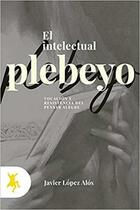
We write in solitude, but, in one way or another, we always think in company. This book asks how to build forms of resistance for the intellectual life, which is also a life that is interested in the common.
How to write, how to build a voice, how to make one's individuality compatible with an ironic distance from what is said, how to face the material limits of a time more conducive to attempts to flee and to "whoever can save themselves" than to reflection are some of the questions that the author addresses in these pages. For this, he proposes the figure of the commoner intellectual, a way of reconciliation with joyful passion in and through thought and writing. The critique of the present, far from giving rise to melancholy or despair, is capable of offering us the joyful enjoyment of that thinking (and feeling ourselves thinking) towards others.














